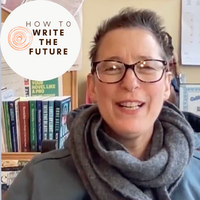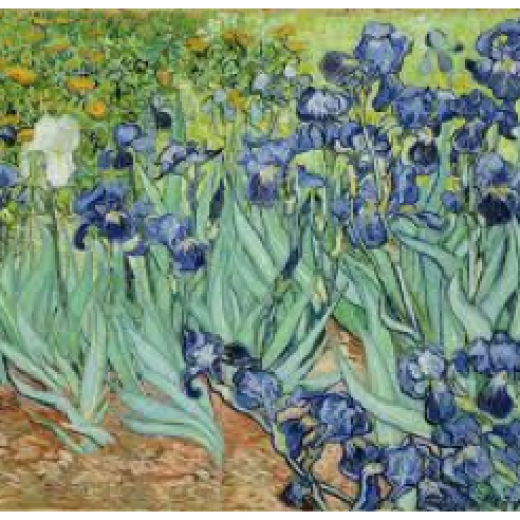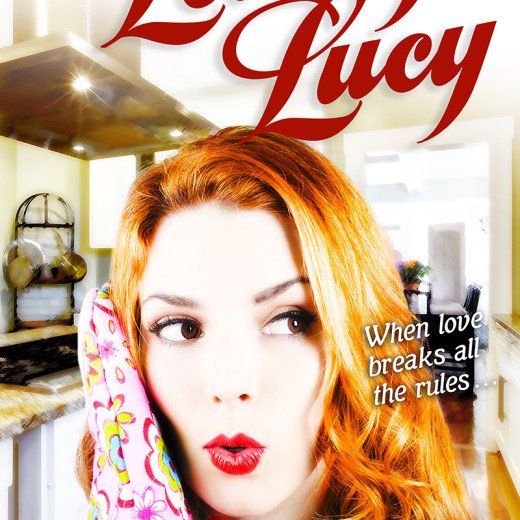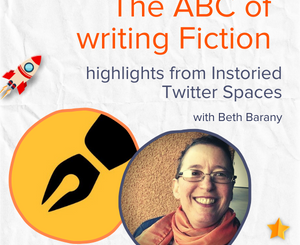What is “enough research” for a science fiction novel?
What is “enough research” for a science fiction novel? – How To Write the Future podcast, episode 58
“My motto for myself around research specifically is: if it’s not fun, stop doing it.”
In “Episode 58, What Is ‘Enough Research’ for a Science Fiction Novel?” host Beth Barany, creativity coach, and science fiction and fantasy novelist answers a question from a listener on research for their current novel and shares what she has planned for upcoming episodes on How To Write the Future.
Platforms The podcast is available on Apple Podcasts | Google Podcasts | Buzzsprout | Spotify | Podcast Addict | Amazon Music | Youtube
RESOURCES for What is “enough research” for a science fiction novel?
Free World Building Workbook for Fiction Writers:
https://writersfunzone.com/blog/world-building-resources/
Sign up for the 30-minute Story Success Clinic here:
https://writersfunzone.com/blog/story-success-clinic/
Get support for your fiction writing by a novelist and writing teacher and coach. Schedule an exploratory call here and see if Beth can support you today:
https://writersfunzone.com/blog/discovery-call/
How Space Debris Inspires My Current Novel
https://writersfunzone.com/blog/2023/08/07/how-space-debris-inspires-my-current-novel/
ABOUT THE HOW TO WRITE THE FUTURE PODCAST
The How To Write The Future podcast is for science fiction and fantasy writers who want to write positive futures and successfully bring those stories out into the marketplace. Hosted by Beth Barany, science fiction novelist and creativity coach for writers.
Tips for fiction writers! This podcast is for you if you have questions like:
- How do I create a believable world for my science fiction story?
- How do I figure out what’s not working if my story feels flat?
- How do I make my story more interesting and alive?
This podcast is for readers too if you’re at all curious about the future of humanity.
Transcript for What is “enough research” for a science fiction novel?
Intro + Invitation
Are you looking for a way to dig into your world-building for your story?
Maybe you’re stuck. Maybe you don’t know where to begin. Maybe you have so many ideas, you don’t know how to organize them.
Well, if you would like to bring your story world alive for your readers, then I recommend that you check out my World Building Workbook for Fiction Writers. Now available.
It’s at How To Write The Future.com.
Just head on over there.
Click, sign up. Put your name and email, and there you go.
That workbook will be delivered to your inbox straight away.
Welcome to How To Write The Future podcast
Hey, everyone. Welcome to How To Write the Future podcast. I’m your host, Beth Barany. I am a working novelist and a working creativity coach and teacher for especially science fiction and fantasy novelists.
I’m here today to answer a question from last week’s episode where I talked about research.
I also talked about space debris or space junk. And I’m going to touch on that a little bit at the end, but this episode is devoted to answering a question from one of our listeners.
So I have permission to share her question, share her name. And, I’m going to dive right into that in a moment.
I just want to say this episode is probably more focused to science fiction writers than fantasy writers, although it could apply to fantasy writers.
All right. So, this question comes from Jennifer Dondero, who is a professional genealogist and used to doing lots and lots of very meticulous research, citing her sources. And, just really having to be very meticulous about her research.
What is enough research for a novel?
So her question is really about: what is enough research for a novel?
She has a research background. She’s been a professional genealogist since 2005 and has done genealogy since 1989. But she slowly leaving that career behind to write stories, and she’s writing her stories. They’re near-future stories set 15 to 30 years in the future.
But she says, “I’m burned out on researching. I want to minimize the research I had to do at least for now. I can’t seem to get some things clear in my mind. I’m stuck on book two.”
So she wrote book one, it went great. Now she’s stuck on book two in her series.
And she says, “It’s possible I’m making this too hard. I think from the episode, you’re indicating that you just learn a lot about the topic. You’re not necessarily making notes from everything. I’ve done that to get myself started on a new genealogy topic. But in general, I think of research as taking notes and writing cited reports, but I don’t see a need for report for my novel, but my brain still says I need notes that will allow me to do such a report. I don’t want to stop and do a bunch of research. The very idea makes me tired. Perhaps though what I need is to learn about a topic, not research it. That’s different to me.
I can listen to audiobooks or podcasts while walking. I can’t research while walking, because I can’t make notes.”
“So what is enough research?
And maybe even how has research defined when talking about writing fiction?”
So, thank you so much, Jennifer, for your question. I just love it. And because I have a background in working in libraries, I totally understand where you’re coming from.
I wrote a thesis for my bachelor’s degree and you know, all the research. So I totally get that impulse to read and take notes and cite. And it makes sense from Jennifer’s profession.
So in short, my short answer to Jennifer is: if you want to write and be a novelist, then you need to research with that end in mind, with the end of being a storyteller.
What this means in a nutshell is that you do what inspires you to get you into your story world and invent things. That’s your goal. Your goal is to go back to your story, invent the things you want to be inventing. And then your brain might start to ask questions, like what if. Or what if this happened or what if we created this device? Or what if they had this custom?
And interestingly, and this is where this applies to science fiction writers and not fantasy writers so much, unless you’re doing science fantasy, which is a wonderful mashup of the two.
If you’re writing about anything that presumes to take place in the future, we can research all we want in the here and now, based on what’s coming out of laboratories and all that cool stuff. But of course, no one, no one I can’t predict the future.
So, our research really, in this case, You’re right, Jennifer, it’s about learning. It’s about learning about the new topic. It’s about learning something you didn’t know or learning some details, and then taking that and being inspired and going back to your story.
So your story actually is about characters up against conflict. And so what you’re inventing might be things about their landscape, might be things about their background, their history, their culture, might be about the physical artifacts that they interact with as normal in their daily life.
So your job is to take what you’ve learned, and you’re right, it isn’t research in the academic sense, learning these new things, and bring them into your story. So your character can interact with the artifacts, with the cultural behaviors and assumptions that exist inside your world.
I hope that helps.
My motto for myself around research specifically is: if it’s not fun, stop doing it.
Because the creative process really needs us to be inspired.
It needs us to come alive, be on fire.
And if it’s your hobby to listen to some fun audios things like that when you walk and that inform you and at some cool subject, like I love to listen to the space launches.
And also I love to listen, learn about space junk.
So it do what inspires you and what gets you back to the page. That’s the goal.
The goal is not to write a report, not to be yeah, create citations, although keep track of those.
And Jennifer, you let me know that you did put them in the file that you’re using to write your book and that inspired you and got you thinking about your character and that’s awesome.
I do too. I take the things I learn and I cite sources so that I could come back to it if I want and study it some more. And then I have another file. I use Scrivener where I write what exists in my world.
So I might, for example, Time zones. I was studying time zones the other day. and I have to decide where does my space station, which time zone does it use? So I have a list of today’s time zones for the different locations. And then I have some locations that don’t exist in today’s world. I’m like, what time zone will that be? Well, all that goes into the story world list of details.
Touching in Space Debris (Space Junk)
So I want to just come back to space junk or space debris, and I’ve been daydreaming about creating a fake- I shouldn’t say fake- an imaginary news show, or a news broadcast inspired partly by a woman who does space weather. Okay.
So there’s this fabulous woman who has her own YouTube show called Space Weather Woman. Her name is Tamitha, and she puts out this fabulous broadcast on space weather, which is essentially how the sun is impacting us over here. Both our, our telecommunications, our satellites, the auroras, and, how it affects impacts people who are flying a lot. The flight crew plus passengers and, and she’ll talk about solar flares and, it’s fabulous.
So my daydream was to create an imaginary show like hers specifically talking about what new space junk is being put into orbit around the planet because of all the launches going on. So it’s a little bit of a social critique and a little bit, like, Hey, we need to be aware of this.
So anyway, I’m curious to hear if anybody is interested in that and excited about it like I am. It’s actually kind of a scary topic.
Also, I am in the beginning stage of building a whole series of interviews and podcast episodes around interviewing space debris experts.
So just going to put that out there.
If you know of people in this field already, let me know. I’m working my network to meet all these people. And, so I’m putting it out there to you. If you know of anyone in the space junk, space debris, orbital debris industry, I would love to meet them and interview them for How To Write The Future podcast.
All right, everyone. That’s it for this week’s episode. Stay tuned for more episodes coming. I have some great interviews in the pipeline coming. That’s all I’m going to say right now.
If you’re watching me on social media, you might hear some of the bits and pieces that I’m dripping out about these guests that are coming in.
Please like, subscribe.
And you know please share with the writers in your life where writing science fiction and fantasy, and want to create positive, optimistic futures, because when we vision what is possible, we help make it so.
That’s all for this week. Everyone take care and happy writing.
If you have any, questions you would like me to feature on an upcoming episode of How To Write the Future, please write me. Let me know. I’m on all the socials. I have a contact form on my website, how to write the future.com. Your question can be featured on an upcoming episode.
Thank you so much, everyone, for listening to my podcast. Your interest and feedback is so inspiring to me and helps me know that I’m helping you in some small way.
So, write long and prosper.
***
Are you stuck and overwhelmed by world-building?
Then check out my new World Building Workbook for Fiction Writers.
It will help you brainstorm your way through all the challenges.
It will help you bring specifics and clarity so that your book will come alive and your reader will feel immersed in your storyworld.
When your reader is immersed, they don’t want to leave your story world and they will read on into the night and wait for the next book and bug you for the next book.
If you would like to bring your story world alive for your readers, then
Head over to HowToWriteTheFuture.com and sign up for yours today.
Loved this episode? Leave us a review and rating here: https://www.buzzsprout.com/2012061
ABOUT BETH BARANY
Beth Barany teaches science fiction and fantasy novelists how to write, edit, and publish their books as a coach, teacher, consultant, and developmental editor. She’s an award-winning fantasy and science fiction novelist and runs the podcast, “How To Write The Future.”
Learn more about Beth Barany at these sites:
Author site / Coaching site / School of Fiction / Writer’s Fun Zone blog
CONNECT
Contact Beth: https://writersfunzone.com/blog/podcast/#tve-jump-185b4422580
Email: beth@bethbarany.com
LinkedIn: https://www.linkedin.com/in/bethbarany/
CREDITS
EDITED WITH DESCRIPT: https://www.descript.com?lmref=_w1WCA
MUSIC: Uppbeat.io
DISTRIBUTED BY BUZZSPROUT: https://www.buzzsprout.com/?referrer_id=1994465
SHOW PRODUCTION BY Beth Barany
SHOW NOTES by Kerry-Ann McDade
***
For more “How To Write the Future” episodes, go here.
If you’d like to invite Beth onto your podcast, drop her a note here.






